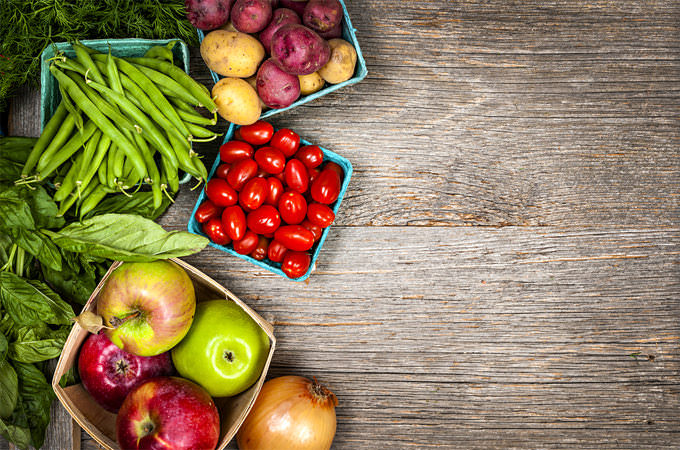
Organic food products only used to be available in farm shops and health food stores, but they are now readily available in most supermarkets. As well as fruit and vegetables, you will now find organic meat and dairy products on the shelves.
Public awareness of the connection between what people eat and their general health has made organic food very popular, but does is really have proven benefits to health?
What is organic food?
Produced by organic farming methods, organic foods are produced without synthetic pesticides or chemical fertilizers. The cost of production means organic foods are generally a little more expensive, but the gap is closing. Broadly speaking, organic foods are produced in more environmentally and animal friendly ways.
How is organic food produced?
Healthy, fertile soil is nurtured by rotating crops and using compost and manure as fertilizer. A diversity of crops and the fact that use of land is rotated helps the soil to recover and to break to cycle of disease and pests.
Local environments benefit from organic farming as there is no risk of contamination from hazardous chemicals. Crops are protected from aphids and other pests in natural ways, and weeds are kept under control without the use of chemicals.

What are the health benefits of organic food?
It’s widely accepted that modern diets contain too much saturated fat, sugar and salt. Diabetes, blood pressure problems and heart disease are common in the developed world due to poor eating habits.
Supporters of organic food claim that it reduces the risk of many illnesses and encourages healthier living. As well as chemicals and pesticides, modern farming methods often involve the use of growth hormones and antibiotics, and this has raised serious concerns with some health experts.
Cynics argue that there is little evidence that organic foods in general have proven health benefits, but experts agree that certain foods clearly are better for you if they are organically produced.
Organic milk has more antioxidants, vitamins and healthy omega-3 fatty acids than its non-organic counterpart. Organic tomatoes are also proven to contain much higher levels of antioxidants. Various studies have concluded that organic fruits and vegetables contain more fibre, vitamins and minerals.
What about shelf life?
The absence of preservatives and non-natural ingredients means that organic food tends to have a short shelf life. Some argue that this means it’s eaten when it’s rich in nutrients and is better for the body, but there are some health risks. It’s important to check the dates on organic food and to be confident that it hasn’t gone off before consuming.

Are there any serious risks to health?
Experts agree that organic food has a range of health benefits, and it’s good to know where your food is coming from. However, there are some risks to health and it’s important that you take action to prevent these where possible.
One of the simplest things you can do is to make sure that organic fruit and vegetables are washed thoroughly before eating. Salmonella is one of the most common threats to health associated with organic produce, and more virulent strains have appeared in recent years. The E. Coli bug has also been connected with organic food.
Why do organic foods carry these health risks?
Animal manure used as fertilizer is thought to be one of the main causes of health problems in the organic food industry. Antimicrobial preservatives, specialist washes, and chlorinated water are routinely used to kill bacteria in modern agriculture, but producers of organic food resist these methods.

